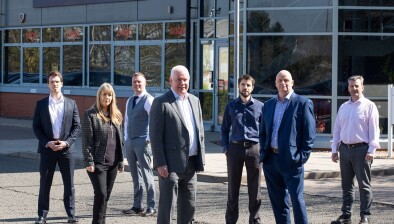New research urges reform of sustainability-linked loans in social housing sector

A new report from corporate finance and sustainability advisory firm Newbridge Advisors has highlighted the need for changes to sustainability-linked loans (SLLs) in the UK social housing sector, following feedback from both housing providers and lenders.
The findings are based on responses from 28 housing associations and six lenders, offering a rare insight from both sides of the table.
The research reveals that while SLLs remain a viable financing option, 38% of housing associations say they would take out new SLLs, there are concerns about their effectiveness. Only 10% of housing associations surveyed felt the costs of setting up and monitoring SLLs were proportionate to the environmental, social and governance (ESG) outcomes achieved.
Housing associations raised questions around value for money, inconsistencies in KPI frameworks, and high costs related to assurance, legal and bank fees. Lenders, while generally positive about the sector’s ESG credentials, acknowledged the need for better cost efficiency and called for more robust ESG strategies within housing organisations.
The report makes several recommendations for improving the effectiveness of SLLs, including:
- Clearer strategy and KPI-setting from housing associations
- Stronger internal ESG governance and reporting mechanisms
- Better communication of impact and outcomes
- Reduction in costs related to bank, legal and assurance processes
Despite the challenges, SLLs have played a significant role in channelling sustainable finance into the sector, securing billions of pounds in recent years. However, Newbridge warns that the product must evolve if it is to remain fit for purpose.
“Sustainability and ESG are firmly on the agenda in social housing, reflecting their deep connection to the sector’s mission,” said Janani Paramsothy, associate director at Newbridge Advisors.
“Our research shows that funding alone won’t deliver net zero and social impact goals—organisational culture and strategy matter just as much. SLLs still have a role to play in helping to address both the housing crisis and climate goals. These findings are intended to shape a more effective and collaborative market.”
The research also found lenders are seeing growing regional and size diversity among housing association clients, including those entering the SLL market for the first time. While lenders noted that margins on social housing loans are already low, there was consensus on the importance of revisiting assurance and monitoring costs.
Chris Evans, director at Newbridge, said: “No financial product remains perfectly suited to a market as it matures. Our report offers practical insights that both lenders and housing providers can act on to improve how SLLs are implemented and how outcomes are delivered.”
Anup Dholakia, director of treasury at SNG, said: “While early progress has been made, there’s still a disconnect between lenders and borrowers—particularly when it comes to value exchange. This report outlines key areas where both sides can align to drive better social and environmental outcomes.”
Caroline Barr, head of sustainability expertise UK at ABN AMRO, added: “Newbridge’s work sheds important light on the experience of SLLs in social housing. At ABN AMRO, we are committed to supporting the sector and believe collaboration is essential to unlock sustainability progress through effective partnerships.”






